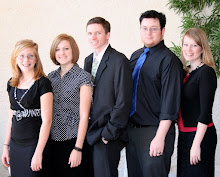
Funny, how some things that are the most familiar to us can also be the most misunderstood. It is not popular, for instance, to defend femininity. It shouldn’t, but the word still evokes images of ruffles and lace and a terminal dependency upon men.
When speaking of industrialized culture, femininity is confused with the boorishness of blatant sexism in advertising. It is derailed by cheap shots about women being the weaker, emotionally-burdened sex.
 Some women feel almost apologetic if they enjoy baking or picking up a needle and thread. Many young women see their future marriage as strictly a 50/50 proposition; both parents will contribute monetarily to the support of the household - that’s only fair. They have enjoyed a full generation of equality in America and can’t conceive of anything that falls short of their equitable Solomonesque split down the middle of stereotypical gender roles. They fail to consider that a stay-at-home mom IS contributing to the family in a enormously valuable and yes, profoundly traditional way.
Some women feel almost apologetic if they enjoy baking or picking up a needle and thread. Many young women see their future marriage as strictly a 50/50 proposition; both parents will contribute monetarily to the support of the household - that’s only fair. They have enjoyed a full generation of equality in America and can’t conceive of anything that falls short of their equitable Solomonesque split down the middle of stereotypical gender roles. They fail to consider that a stay-at-home mom IS contributing to the family in a enormously valuable and yes, profoundly traditional way.

An essay excerpt about traditional tribal femininity vs dominant culture femininity by Native American author Paula Gunn Allen, is on the war-path with what she perceives as a rootless, tasteless industrialized culture and the sorry, impotent women in it. From an anthropological point of view, Allen makes classic, anticipated comparisons between her tribal identity and the roles of women in the larger society. Her presentation of ritual and gender are timeless and beautifully articulate. She of course is well-versed in the many mythical feminine characters which occupy indigenous lore. These feminine personalities are fascinating, powerful representations of wise and beneficent women who organize, give life to or directly influence what sustains the viability of the whole community. They are dominantly featured in origin stories, thereby responsible for much of the natural world and the people’s relationship to it. Above all else, their capacity to bring forth life is deeply revered.
She points out the obvious with almost an open disdain: Women are not perceived the same way in western industrial and postindustrial cultures. There is no back-up section of “mythic feminine figures” to inspire or explain the origins or organization of life. Allen mentions only a single candidate we might claim, and that in ironically dismissive terms. She offers us the Christian Madonna as the female prototype for our western culture, and interestingly enough, Allen notes she is “...portrayed essentially passive; her contribution is simply that of birthing.”
And what a birthing that was! Can you say ironic? It is incredible that this accomplished and sensitive author has structured a very thoughtful piece about the feminine mothering power of native women, yet completely negated the enormously significant mothering contribution of the one and only woman in the world who gave us Jesus the Christ.
Mary, unlike Spider Woman, Coyote Woman or Corn Woman - was not mythical. We can only surmise what import her unique and indeed, divinely appointed influence was upon the young Jesus preparatory to his profound earthly ministry. A ministry, which (and it is the understatement of the day) of necessity validated His Divinity and our Eternal future with Him. For a believer, in other words, there is nothing bigger than the Atonement of Christ for all mankind. Mary was chosen by God for this singular honor to mother His only begotten son. To reduce her personal worthiness (and the great trust that was placed upon her) to a functioning reproductive system is shallow and disrespectful.
There are, unfortunately, women who can produce a baby and betray their calling as mothers.

(Andrea Yates & her 5 children she drowned in the family bath tub)
Mary was not one of those. I am not one of those. None of the other women I know or have ever known personally are one of those. To mother children is automatically a discussion about power - the power to protect, to sacrifice, to teach, to inspire, to motivate, to discipline, to dream, to agonize, to celebrate, to hope. Mothering power is all about the glory of it, or the abuse of it. Either way, the family of man is irrefutably affected, even molded by legions of mothers through the ages. The dismissive tone in which Mary’s feminine power is mentioned seems to expose a pretty glaring bias.

Paradoxically, the author is even more dismissive of the painful dinosaur in the room; native women are 30% more likely to be the victims of domestic violence, rape and homicide than their non-native counterparts. Their families are under attack on and off the reservation by generations of substance abuse, illiteracy and unemployment. Strong women are required for these difficult times, regardless of their tribal, religious or cultural affinity.
I respect Allen’s loyalty to her culture, and her awareness of her feminine heritage. I suggest that she ought to see more of what she shares with her non-native sisters, and be less comfortable misunderstanding an equally powerful femininity that lies beyond the borders of Pueblo lands, and across the passage of time.
If Mary had been Pueblo or Sioux or Pima or Kiowa, perhaps her influence would find more merit? But this is the author’s mistake! Allen has identified Mary as the Catholic Mary. And as such she assumes an emphatically mythical quality indeed! Ignoring that entire aspect (and the global, cross-cultural impact of her many overtly mythical variants), the author is clearly defining the Catholic Mary as the only significant (non-tribal) yet impotent feminine figure claimed by western culture.
If Paula Allen could have asked Mary personally, Mary would have told her which tribe she was immediately. Tribal affiliation to the peoples of the Middle East has always been paramount to one’s core identity and deepest spiritual value.
Funny, how Paula and Mary have much more in common than she thought.









